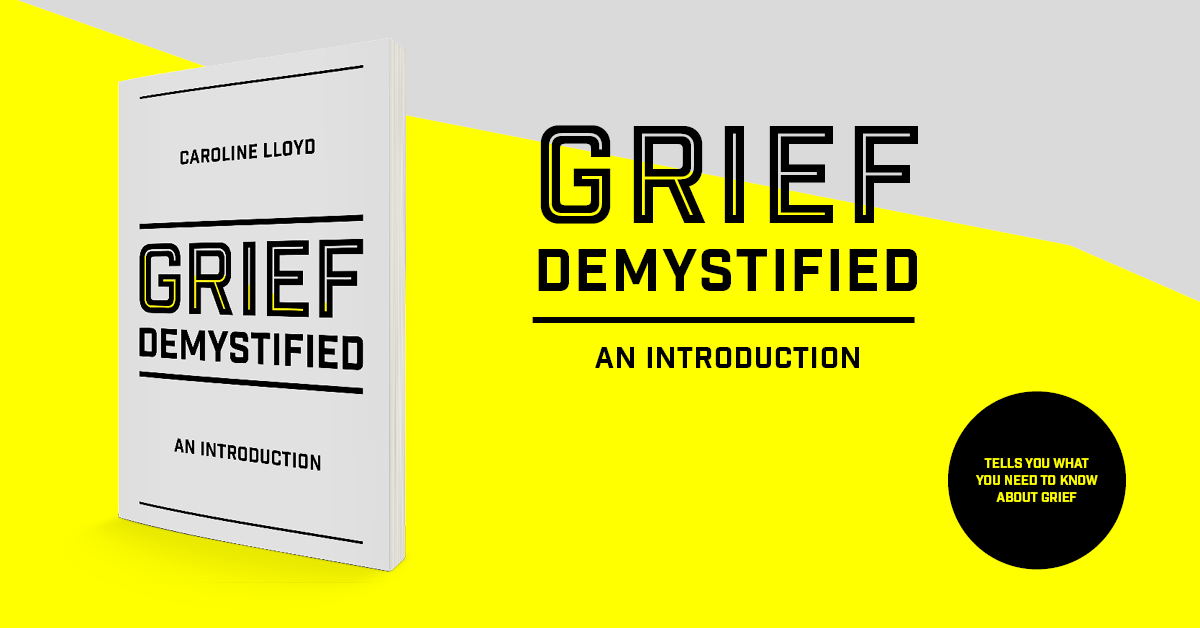
In this extract from Grief Demystified, Caroline Lloyd presents a range of scenarios resulting in bereavement, to allow the reader to reflect on the differences that bereaved people experience, thus enabling professionals, family and friends to better communicate with a person who has been bereaved.
Consider why the following are different:
- The death of a child
- Death within the family structure
- Death by suicide
- The death of a partner/spouse
- The death of a parent
- Death by road accident
- How death impacts on older people
- The death of a child is unique, because it is the death of the dreams the parent had, and the future that they were held in. It is also unique because it is the only relationship between two people where one person created the other. All other relationships are formed externally. The death of a child is also an out of order death: parents are expected to die before their children, whether they are still in gestation or adult children.
- Family structures are complicated, and even more so in extended families. There are assumptions of roles and expectations that may or may not be met after a bereavement. Each family member will react to the death and grieve in their own way. The attachment to the deceased will vary with each person, despite being within the same family. Conflict can arise if family members think they are ‘more’ bereaved than others. There may also be expectations of the role the family members will take with regard to the funeral, and who will be making the decisions. Resentment and blaming can occur if the family are not communicating effectively, and this will have a residual effect on any children or young people. Every effort should be made to ensure families communicate with each other, and include children (in an age-appropriate way).
- Suicide presents challenges because the overriding question is always ‘Why?’, whether there is a note left by the bereaved or not. Guilt is a common emotion experienced by the survivors, due to the ‘what if’ scenarios. Social stigma can remain in some environments, and the griever may therefore feel isolated or unsupported. When interacting with someone affected by suicide, it is important to remember that they are still bereaved primarily, the nature of the death should not be the focus.
- The death of a partner/spouse can be overwhelming, not only because of the emotional loss, but also because it leads to secondary losses. These can be financial if the deceased was the sole earner, or if the bereaved is unable to work following the death. These can be practical losses: if the deceased was the carer, driver, etc. There can be a loss of identity; for example, the status change from ‘married’ to ‘widowed’. There can also be other losses such as loss of faith or support. There is also the loss of the future, many couples plan for holidays or retirement together, for example. The death may also lead to the loss of security or confidence. There can also be social and/or friendship losses. There can also be loneliness, and living within the home full of memories may be difficult.
- The death of a parent, step-parent or carer can be a considerable loss, particularly when that person has been there from birth or infanthood. As they provided the role of unconditional love, support and stability, losing that can lead to complicated feelings. There can be a feeling of abandonment, and it can also make people aware of their own mortality when they become the eldest generation. There may also be a shift in family dynamics, particularly when the last surviving parent dies. There may also be a provocation of sibling rivalry, and tensions between family members.
- Road deaths are premature, sudden and traumatic. They are widely reported in the press, which can also impact on the bereaved. They are the result of someone else’s action or inaction so there is a causation factor that can give rise to blame and anger. Road deaths involve police investigations and legal processes. These processes and complications can be stressful for the family and can be confusing and overwhelming to deal with.
- Some older people become unable to cope with the impact of death, particularly when it is a lifelong spouse or one of their children, for example. Many elderly people are dependent on others for tasks, and for the quality of their life, and when that person dies it has a significant impact. They may be living alone for the first time in their adult life, and this may leave them feeling lonely and isolated. They may have lost the person who shares the most memories with them, and this can affect their sense of identity. Some older people may feel that they have lost everything from their past, with a bleak future ahead. Death for older people can also signal a sense of their own mortality, particularly following multiple bereavements.
If you would like to read more articles like this and get the latest news and offers on our books about Bereavement, why not join our mailing list? We can send information by email or post as you prefer and you can unsubscribe at any time.